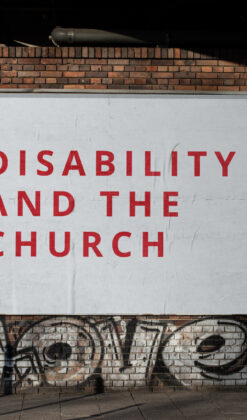Does the Bible demand that someone must have regenerate kids in order to be a pastor or elder? According to some translations, the answer is yes. For instance, the ESV of Titus 1:6 reads:
“if anyone is above reproach, the husband of one wife, and his children are believers and not open to the charge of debauchery or insubordination”
According to the ESV (and NASB), the meaning is clear: your kids have to be saved if you’re going to be a pastor/elder; if they aren’t, then you’re not qualified. But the meaning of this verse is not too clear and here’s why. The Greek word pista (from pistos, translated “believers” above) could either mean “believers” or it could just mean “faithful.” The latter term does not demand that the kids are saved, only that they are submissive. In order to figure out what the word means here, it may be helpful to look at how the word is used through Paul’s letters, especially the Pastoral Epistles (1-2 Timothy and Titus).
Unfortunately, doing a word study doesn’t help us much. Pistos is used 16 times in the Pastorals, 9 times referring to people, and 5 of those 9 times it means “believer,” and 4 other times it means “faithful.” So a mere word study ends up with a hung jury—we’ve got to dig up other contextual clues to figure out how to best translate the word. So here are three contextual reasons why I think pista in Titus 1:6 is best translated as “faithful” and not “believers.”
First, the phrase in 1:6b says that they should not be “open to the charge of debauchery or insubordination.” This phrase probably refers to the children of the previous statement—“children who are pista”—and therefore describes what pista means. Here, it would refer to their behavior, not their salvific state. Now, commentator Bill Mounce, who knows Greek better than I know English, thinks that 1:6b refers to the elders and not the children (Mounce, Pastoral Epistles, 389). But even so, this still points to the elders’ managerial skills in the home, not their assurance that their children have been regenerated. So the following phrase in 1:6b makes betters sense if we translate pista as “faithful.”
Second, the context of Titus 1 summarizes qualifications related to the personal responsibility of the elder, which would lend support for the translation “faithful” instead of “believer.” As Justin Taylor points out:
“[A]ll of the requirements for eldership that are listed in this passage (being married once, being temperate, sensible, respectable, hospitable, a good teacher, not a drunkard, not a lover of money, and not a recent convert) are actions of personal responsibility. We would expect the requirement regarding his children to be in the same category. Requiring that his children have genuine saving faith is to require personal responsibility for the salvation of another, something I don’t see taught in Scripture.”
Third, and most importantly, there is a parallel passage in 1 Tim 3:4-5 that supports this understanding of Titus 1:6. The passage reads:
“He must manage his own family well and see that his children obey him with proper respect. (If anyone does not know how to manage his own family, how can he take care of God’s church?)”
This passage clearly refers to the managerial skills of the elder—he manages his household well. Nothing is mentioned of the salvific state of the children. It would be rather odd if Paul gave a looser requirement for elders of Ephesus (via Timothy), and a stricter requirements for elders at Crete (via Titus).
For these three contextual reasons, I find it best to translate Titus 1:6 as “faithful” not as “believers.” The Greek allows it, the context suggest it, and theologically it would be a bit weird if the elder—or any person—was to take responsibility for someone else’s salvation.
So what does this mean?
Let’s just say that you’re an elder and your kids are unruly (they are not pista). We often see this qualification negatively, but isn’t there a positive message here? It’s not that the rest of the elder board needs to scrunch their eyebrows and aim their boney fingers at the elder with unruly kids and say, “you’re disqualified!” I think there’s more of a positive message here. Paul says that if your household is not in order, then you should be released from managing the church in order to better manage your home. It’s not so much that you’ve been disqualified, but you’ve been freed up to do the most important thing: loving and serving your family.











